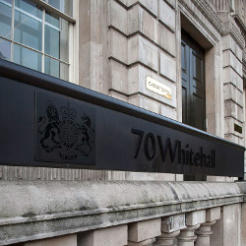The Cabinet Office has announced a new clause in grant agreements which will ban charities and other organisations from using government grants to lobby government and Parliament.
Matt Hancock, minister for the Cabinet Office, announced a new clause on Saturday which has been inserted into all new and renewed agreements.
But the clause has been widely condemned by charity representatives, with Sir Stuart Etherington, chief executive of NCVO, saying it was a "draconian move" and "tantamount to making charities take a vow of silence", and shadow minister for civil society Anna Turley saying it was "an outrageous attempt" to prevent charities criticising government when its policies failed their beneficiaries.
Hancock said the clause was intended to stop government using its own money to pay charities to lobby for unpopular policies, but charities have repeatedly said there are almost no proven examples of this taking place.
Hancock said the new clause will “make sure that taxpayer funds are spent on improving people’s lives and good causes, rather than lobbying for new regulation or using taxpayers’ money to lobby for more government funding.”
He said the clause will not prevent organisations from using their own privately-raised funds to “campaign as they see fit” and that the new rules were “successfully piloted” by the Department for Communities and Local Government last year.
“These common sense rules will protect freedom of speech," he said.
Sector calls for government to reconsider
Anna Turley, shadow minister for civil society, said the announcement was "an outrageous attempt to further curb the independence of charities and restrict their ability to speak out on issues of failing government policy".
"It has not even been put before Parliament so that it can be debated properly," she said. “Yet again we are seeing the actions of an illiberal government who are scared to debate their record or be open to scrutiny.
"First we had the gagging act, and now these gagging clauses - where will this end? They should be open to the legitimate views and ideas of civil society, who are the ones who have to deal with the failings of government policy, not ride roughshod over them. For the sake of a decent and transparent democracy I urge them to reconsider."
Sector bodies, including NCVO and Acevo, have also strongly voiced objections to the clause.
Sir Stuart Etherington, chief executive of NCVO, said that the clause is “tantamount to making charities take a vow of silence”.
He said: “Charities provide vital insights and expertise which improve policy-making and often help save or better target tax payer’s money. Charities are already subject to charity law and guidance on campaigning that does not permit party-political campaigning.
“The new rules attached to grant income would appear to prevent charities from suggesting improvements or efficiencies to civil servants or ministers, or even from raising concerns with MPs, for example about the treatment of vulnerable people.
"Indeed, several government departments have developed ‘strategic partner’ grant programmes specifically to enable them to access the expertise of charities to inform their policy development and delivery for these reasons.
“This is tantamount to making charities take a vow of silence and goes against the spirit of open policy making that this government has hitherto championed. We call on Ministers to reconsider this draconian move that could have significant consequences for the charity sector’s relationship with government. I trust government will consult further on this.”
Sir Stephen Bubb, chief executive of Acevo, said he is “shocked and disappointed by the latest erosion of free speech and advocacy” and also urged the government to reconsider.
“Charities by their very nature are best placed to know what is needed by the people and causes they serve. To restrict the sector from drawing the Government’s attention to gaps or failures of service is not only draconian but self-defeating.









